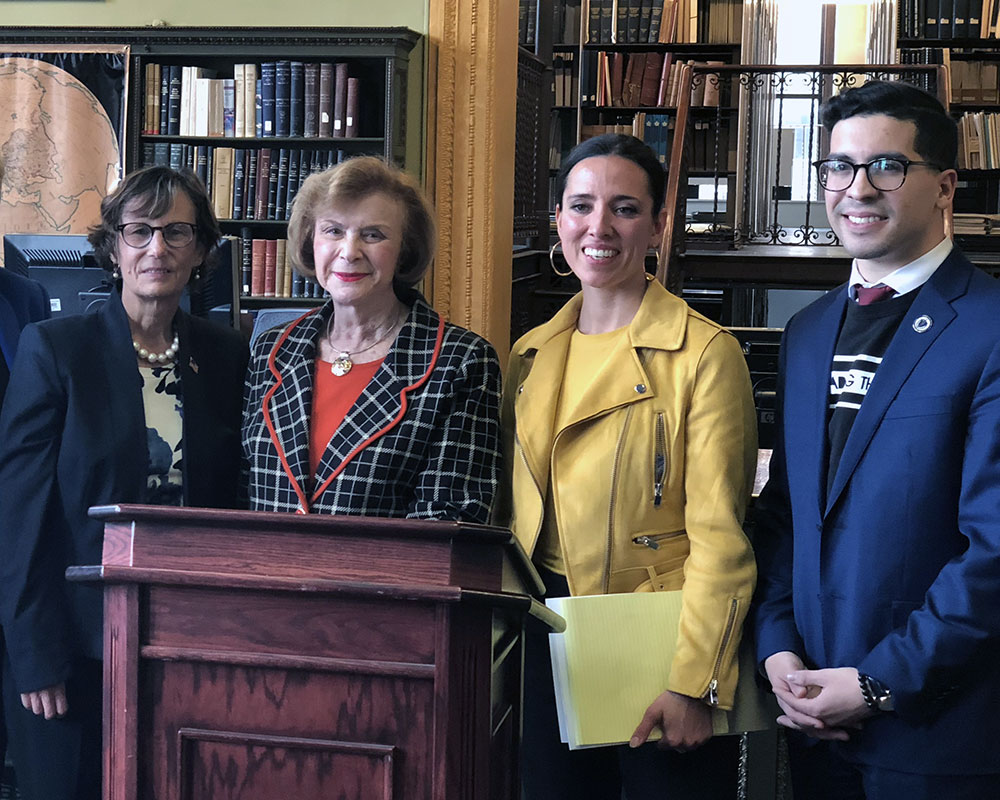Introducing the Civics Education Bill were authors Rep. Linda Dean Campbell and Senate President Harriette L. Chandler, Sen. Sonia Chang-Diaz and Andy Vargas. (Courtesy photograph.)
At a statehouse press conference Tuesday, Rep. Linda Dean Campbell and Senate President Harriette L. Chandler unveiled a comprehensive civics education bill they filed in the House and Senate.
The legislation requires the state Board of Elementary and Secondary Education to revise civics studies to create a list of age-appropriate curriculum units at both elementary and secondary school levels. Studies will include the functions of local, state and federal government branches; founding documents, including the Constitution; civil liberties; the electoral process; responsibility of citizenship; news media literacy; diversity; how civic participation has been limited throughout history; and the common good in democracy.
“Rep. Campbell has been a tremendous partner in this effort,” said Chandler. “She has dedicated her life to service for this country and for this Commonwealth. With this legislation, we will provide education for the next generation of leaders. This curriculum is a long-term investment in the future of our Commonwealth.” Campbell represents Methuen and part of Haverhill.
Campbell also lauded Chandler’s efforts over many sessions. “President Chandler has been a champion for reinvigorating the civics education curriculum in Massachusetts and it has been one of her legislative priorities in the Senate for many years. Thanks to her perseverance and leadership this initiative is now coming to fruition.”
The bill was reported on favorably by the Joint Committee on Education.
Rep. Andy Vargas said he has championed civic education since his days at Haverhill High School. “At 16 years old, I walked into the State House for the first time to advocate for a civic education bill. Without Teens Leading the Way and that hands-on, real civic experience, I would not be standing here today as a 24-year-old legislator,” Vargas said.
Campbell’s language aims to make civics education engaging and interactive for students by taking a project-based approach to how civics is taught in the classroom across all grade levels. Districts would be required to make available to students two student led civics projects with at least one being in high school that can be integrated into existing curricula throughout academic disciplines. The project requirements are flexible and allow students to choose issue areas that are of interest and importance to them.
The bill also would establish a “Civics Project Fund” to be paid by the state and outside donors to pay for professional development, evaluation and the creation of model curriculum, and create a “High School Voter Challenge” by the Secretary of State where each public high school will appoint a student voter outreach officer who will hold voter registration drives for eligible voters to register and pre-register to vote during High School Voter Challenge Weeks.

